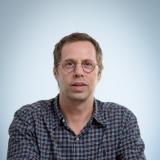Tilburg Algorithm Observatory
Algorithms have the power to influence our decisions, opinions, and preferences. This influence is increasingly unavoidable in digital societies where people tend to inform themselves using social media, search engines, and other online technologies. The Tilburg Algorithm Observatory (TAO) conducts large-scale monitoring and analysis of online services to understand how their algorithms are influencing the digital environment.
-

dr. Henry Brighton
Principal Investigator

Many billions of human-algorithm interactions occur every day as a result of our fascination with, for example, social media, online shopping services, and search engines. In each of these examples, algorithms are responsible for indexing, filtering, and sorting the information that we consume. In what ways are these algorithms biased, how do they influence people, and what role do they play in propagating disinformation? To answer questions like these, we develop technical monitoring infrastructure to conduct large-scale studies of algorithmic influence. Much like an observatory, we continually analyze the data we collect in order to understand the algorithmic biases that are currently affecting society.
Members
- Henry Brighton
- Chris Emmery
- Marie Šafář
- Ronja Rönnback
Project
Search Guardian: Investigations into LGBTQ+ Disinformation Dynamics Across Europe
Funded by the European Media and Information Fund (EMIF), this project investigates the role played by search engines in the spread of disinformation relating to the LGBTQ+ people across several European countries. By combining expertise in artificial intelligence and conservative extremism, the goal of the project is to understand to what extent search engines promote or suppress disinformation.
Disinformation campaigns targeting the LGBTQ+ people pose significant threats to social acceptance and equal rights, threatening not just the core values of the EU member states but also endangering individual members of the society or communities. The project seeks to tackle the lack of robust mechanisms for detecting and monitoring disinformation dynamics, particularly through search engines, which play a crucial role in information dissemination.
Partners
- Institute of Political Studies, Charles University, Prague, Czech Republic
- Prague Pride, Czech Republic
- Data Science Centre of Excellence, Nederlandse Defensie Academie, The Netherlands
Funding

